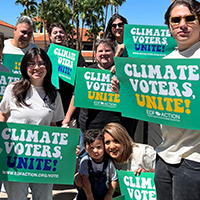Hundreds of Millions Worth of National Energy Resources at Risk as Congress Tries to Rollback a Natural Gas Waste Rule
Contact:
The U.S. House this week introduced a bill rolling back measures to prevent the waste of natural gas – a valuable national energy resource – and reduce unnecessary pollution from oil and gas operations that affects the health of millions of Americans. Enacted last year following successful examples in several energy-producing states, the policy requires oil and gas companies to stop squandering assets owned by the public.
An estimated $330 million worth of natural gas is wasted every year through leaks and the inefficient practice of venting and flaring by companies operating on federal or tribal lands overseen by the Bureau of Land Management. Earlier this month, a federal judge in Wyoming rejected an attempt to block those same rules.
Fixing the problem is straightforward and extremely cost effective. Some states already require it, and leading companies have shown it can be done at minimal expense. In fact, this rule is one of the biggest bargains we have to make sure taxpayers get full value for the public resource that private companies are taking while also protecting the environment in hundreds of communities nationwide.
Statement from EDFAction President Elizabeth Thompson:
“A vote for this bill is a vote to waste a valuable national energy resource, plain and simple. It strips away sensible measures that stop private companies operating on public and tribal land from squandering more than a quarter of a billion dollars a year worth of natural gas owned by the American public – enough to supply every home in a city the size of Chicago. They’re short-changing taxpayers and generating huge amounts of completely avoidable pollution. This vote is a test of whether the system is rigged in favor of business as usual for the oil and gas industry, or whether Congress is prepared to defend the interests of U.S. taxpayers and public health.”



